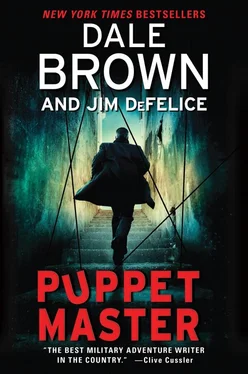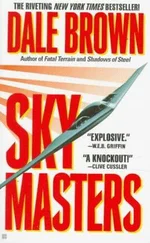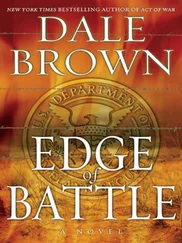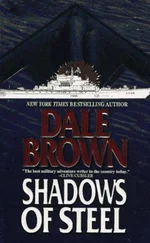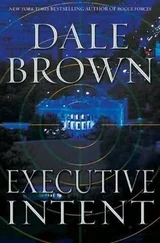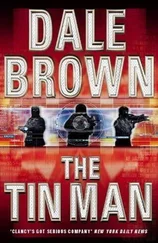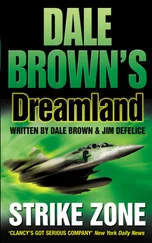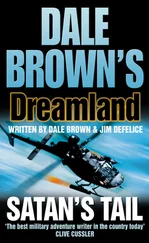* * *
Chelsea’s stomach riled slightly as she clambered out of the boat to the dock, and she had to step to the side as the others carried the waterproof boxes with the bots and other gear from the cabin to the waiting vans.
Bozzone waited for her to catch her breath, then nudged her gently to walk with him in front of the vans. Tolevi was standing with the man they met on the dock—“Dan”—whom he seemed to know.
Tolevi put up his hand to warn them back, then stepped with Dan a few feet away.
“What are we doing?” Chelsea asked Bozzone.
“No English.” His voice was barely audible.
Chelsea rubbed her eyes. Pulling all-nighters in the lab was one thing; pulling them out here was something completely different.
And yet this didn’t feel like a place of danger, especially after what they’d just been through. It was too quiet.
They could be back home, or on a vast sound stage, waiting for a movie to be filmed. The sky in the distance, a faint blue between dark black waves and thick clouds, was a painted scrim, shadowed by hidden lights. The sounds of the night — some seabirds, the relentless lapping of water against the docks — were piped in from speakers stashed full circle around the stage.
Tolevi left the other man and walked toward the vans. He yelled something in Russian or Ukrainian — Chelsea had trouble distinguishing the languages — and the men helping them boarded the vans.
Chelsea started for the nearest van, but Tolevi stopped her.
“Our car’s up the road,” he told her.
“Car?” asked Bozzone.
“Complications. We have to change our plan. This will be safer for both of you.”
* * *
The butcher’s brother had kept tabs on Olak Urum’s location in the prison with the help of two guards who were close friends of the family, an arrangement the Russian crackdown had failed to end. Earlier in the evening, one of the guards had told him his brother had been moved; Dan had only just been informed before coming to the rendezvous.
The question was where he’d been moved to. The guards didn’t know, and while the brother had a few ideas, he hadn’t had a chance to check them out.
Given that, Tolevi had opted not to go to Starobeshevskaya, even though that had been the plan. It was too small a place to risk staying for several days, if it came to that. So they were going to a backup south of Donetsk, about a two-hour drive away. There they would split up.
“The gear will be on a farm. We’ll stay in a safe house about a mile away,” Tolevi told Chelsea and Bozzone. “It’s more comfortable, and I can make phone calls from there without attracting attention, and our cover story will make more sense. Plus, there are beds. I’m guessing you don’t want to sleep on the floor with the boys.”
“Might be interesting,” shot back Chelsea.
“Never at a loss for a comeback, huh?”
“Are you?”
“Only when I talk to my daughter.” She’s a lot like you, he thought. But you’re not necessarily as sharp as you think. There’s more to the universe than slinging numbers around.
They drove in silence for the next hour. Chelsea and Bozzone both nodded off. Tolevi turned up the radio, afraid he was going to do the same.
H-20 was the main road north, dividing farm fields and skirting urban areas much like a highway back in the States. Tolevi stayed on it until he was a little more than halfway to his destination. Fearing he might run into a checkpoint as he got closer to Donetsk, he got off near Buhas and began making his way west, using the GPS to guide him, since he had only a vague idea of where he was.
Ordinarily, the back roads were a better bet against checkpoints and patrols. And according to the briefing he’d been given before leaving on the mission, there were almost no more rebel road stoppages in the area.
So when he realized he was heading for one about ten minutes from the farmhouse where he was headed, Tolevi momentarily thought of running through it.
Foolish, foolish.
Unless they’ve already decided to kill us.
“Up!” he told the others. “Wake up. Remember your cover story. We’re being stopped.”
An old car had been pushed across the road, blocking off all traffic. There were two pickup trucks on the other side, parked parallel to the road just off the shoulder. A group of men huddled near an oil drum, smoking cigarettes. One of them stepped out, holding up his AK-47 to signal that Tolevi should stop.
As if I have another choice.
Tolevi rolled down the window as he coasted to a stop. He put on his best cheery voice, even though he was tired as hell.
Ukrainians, not Russians.
Good.
Maybe. They’ll be more apt to shoot.
“Gentlemen, hello,” he said in Ukrainian. “How goes it?”
“Where are you headed?”
“I am taking the model and her photographer to Klaven Farm. I have to be there by dawn for their photo shoot.”
The man who’d stopped them leaned over, peering in the back. Chelsea and Bozzone blinked at him.
“Model?” asked the man. He reeked of cigarettes.
“A photo shoot for some fancy French magazine. She is from Africa,” added Tolevi. “Somalia.”
“Ah, exotic.”
“Yes.”
“Does she fuck?”
“I don’t ask.”
They looked disappointed, but not inclined to find out for themselves.
“We have to search the car, comrade. Open the trunk and step out.”
“I don’t mind you searching,” Tolevi said, “but I am late, and if you could hurry it along, it would be appreciated.”
The man frowned. Tolevi reached for the trunk latch, then opened the car door. As he did, he palmed a ten-euro note from his pocket.
“If I am late they take it from my pay,” he said, producing the bill. “Worse, they don’t use me again. Let me help you.”
The man grabbed the money, then walked to the back. Two of his companions came over to gawk at Chelsea and Bozzone. There were at least two other irregulars at the side of the road, smoking cigarettes near a rusted oil drum.
“They have papers?” the man asked Tolevi.
“Yes. The company insists on working the right way.” Tolevi shrugged, as if he were talking about an affliction. “They’re always getting their permits and meeting with the big shots.”
“They speak Ukrainian?”
“They don’t speak much at all. I don’t know. African or something. Maybe English, if you try a bit.”
“Where are you from, comrade?” The tone was suddenly suspicious.
“Kiev,” Tolevi said proudly. “We got out after the traitors took over. My brother is still there, in jail. Since then, Donetsk. But someday, I will be back. Someday.”
The man nodded. He leaned to his left, glancing around the trunk — it was empty — then waved Tolevi away.
“Go. Good luck with your task. She looks pretty, at least. Maybe you will get lucky later.”
The box — Boston, a short time later
“ISIS is taking credit for the attack on the Russian ship,” Johansen told Massina. He’d just sent the order. “A bit of misdirection.”
“Will the Russians believe it?”
“Probably just enough to prevent them from looking too thoroughly for our friends,” said the CIA officer. “In the meantime, we’ll continue looking for the butcher. They can’t have taken him far.”
“They could have flown him back to Russia,” said Massina. “What then?”
“I can’t rule it out,” admitted Johansen. “If that’s what happened, then we pull the plug. We get everyone across the border to Kiev, as planned, and they come home. I doubt that’s the story, though. More than likely he is in Donetsk somewhere. Just a question of finding him. These sorts of things are to be expected. They happen. No covert operation ever goes the way you plan. It’s not a computer program.”
Читать дальше
